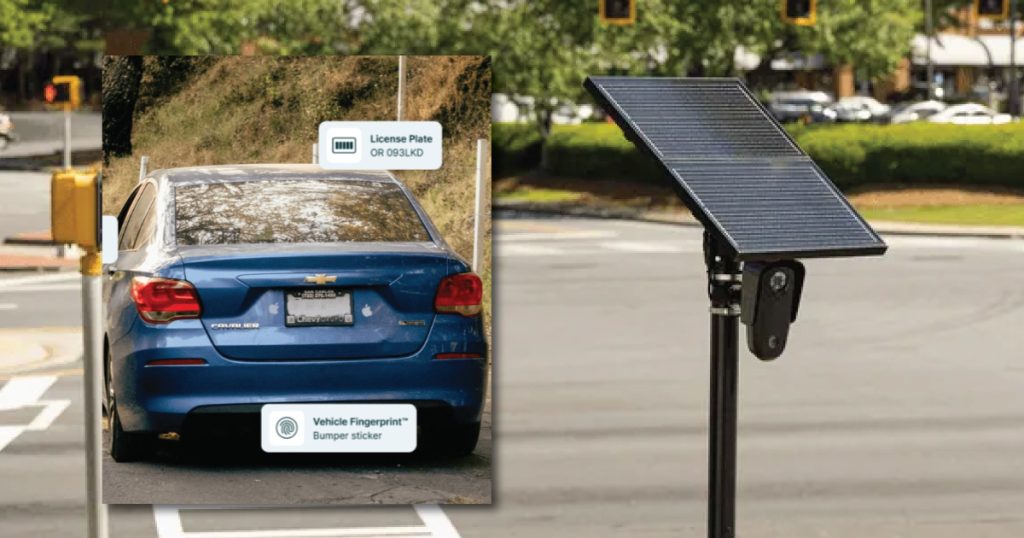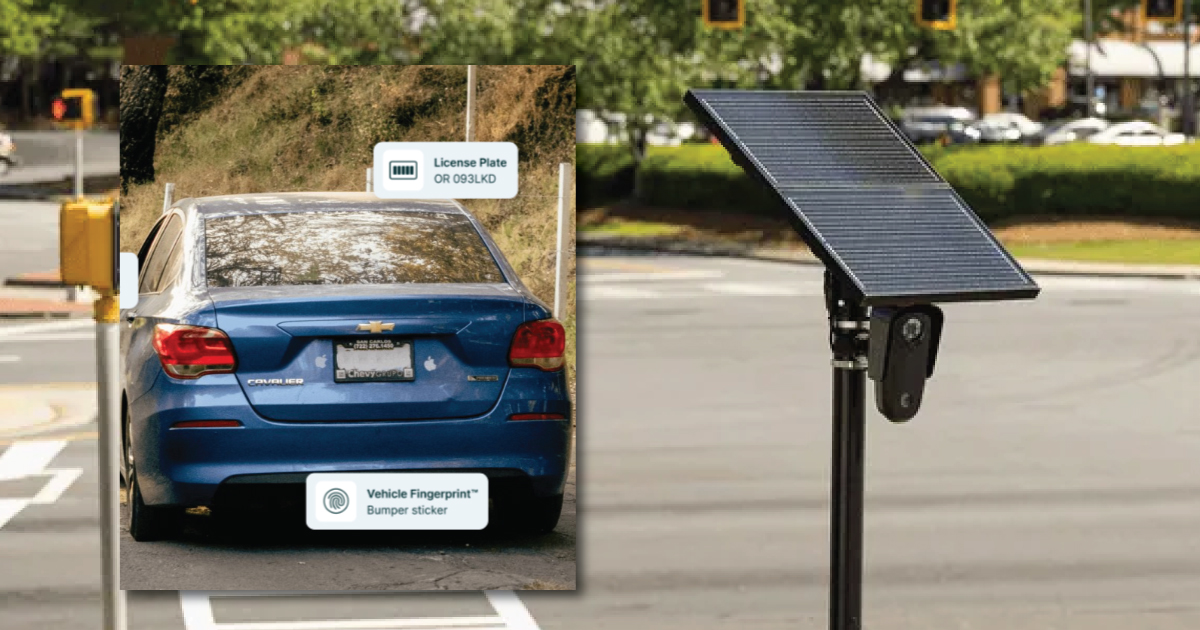LYNNWOOD—The Lynnwood Police Department on Friday, October 24, issued a statement to clarify and “address potential misconceptions” of its use of Automated License Plate Reader (ALPR) technology in response to a recent report by the University of Washington Center for Human Rights. The report titled, “Leaving the Door Wide Open: Flock Surveillance Systems and Immigration Enforcement in Washington State,” suggested that Lynnwood’s ALPR data may have been accessed for immigration-related queries raising concerns about potential misuse of ALPR data for federal immigration enforcement.
 Image of Flock Falcon ALPR camera. Source: Flock Safety.
Image of Flock Falcon ALPR camera. Source: Flock Safety.
“We take the concerns raised in the UW report seriously, but it’s important to clarify that Lynnwood has not shared ALPR data with federal immigration enforcement,” said Lynnwood Police Chief Cole Langdon. “Our team acted quickly and decisively to close unintended access pathways and ensure our system aligns with state law and community expectations.”
Lynnwood’s ALPR system became operational on June 29, 2025, after being unanimously approved in January 2025 by the Lynnwood City Council to combat rising motor vehicle thefts. The Lynnwood Police Department then entered into a two-year agreement with Flock Safety to lease 25 of its Falcon ALPR cameras that were placed at strategic—high traffic and/or high-crime—locations around the city.
On July 1, LPD staff identified unauthorized access by two out-of-state law enforcement agencies—the Franklin County Sheriff’s Office in Pennsylvania and the Jacksonville Police Department in Florida—and promptly began investigating with Flock Safety, the system’s vendor. By July 8, it was determined that a “nationwide search” feature had inadvertently allowed reciprocal access to Lynnwood’s data for agencies outside Washington State.
In response, Lynnwood PD took immediate steps to address the issue. On July 9, the nationwide search feature was disabled, preventing all out-of-state access. On July 10, access was further restricted to only Washington State law enforcement agencies that had signed Lynnwood’s user agreement. Since then, only agencies with signed agreements have been permitted to access the city’s ALPR data.
The department confirmed that no federal law enforcement agencies accessed Lynnwood’s ALPR data during June 29, 2025 (date the system became operational) and July 8, 2025, (date the root cause and Corrective Action Plan was determined).
The ALPR system supports Lynnwood’s public safety efforts by aiding in the recovery of stolen vehicles, assisting with AMBER Alerts and missing person cases, supporting violent crime investigations, and enhancing officer safety.
The LPD affirmed that its ALPR system operates under strict policies, with oversight to ensure transparency and ethical use.
According to research from the King County Prosecutors Office, video surveillance is 152 more cost-effective than human surveillance saving hundreds of hours canvassing and analyzing video surveillance by paid officers which will now be performed far more efficiently using the Flock Safety platform. After a positive vehicle is identified by the Flock Falcon camera, officers will receive automatic real-time alert via email and/or text of the plate, image of vehicle, and GPS location.
The Flock Falcon ALPR cameras do not have facial recognition technology, don’t track speed, nor aid in parking enforcement. The data collected from the cameras is automatically deleted after 30 days, Lynnwood Police said. These cameras are separate from the current photo enforcement cameras throughout the city of Lynnwood.
LPD reports on its website that just within the last 30 days, a total of 709,377 vehicles have been scanned with 1,213 flagged for a “hotlist.”


